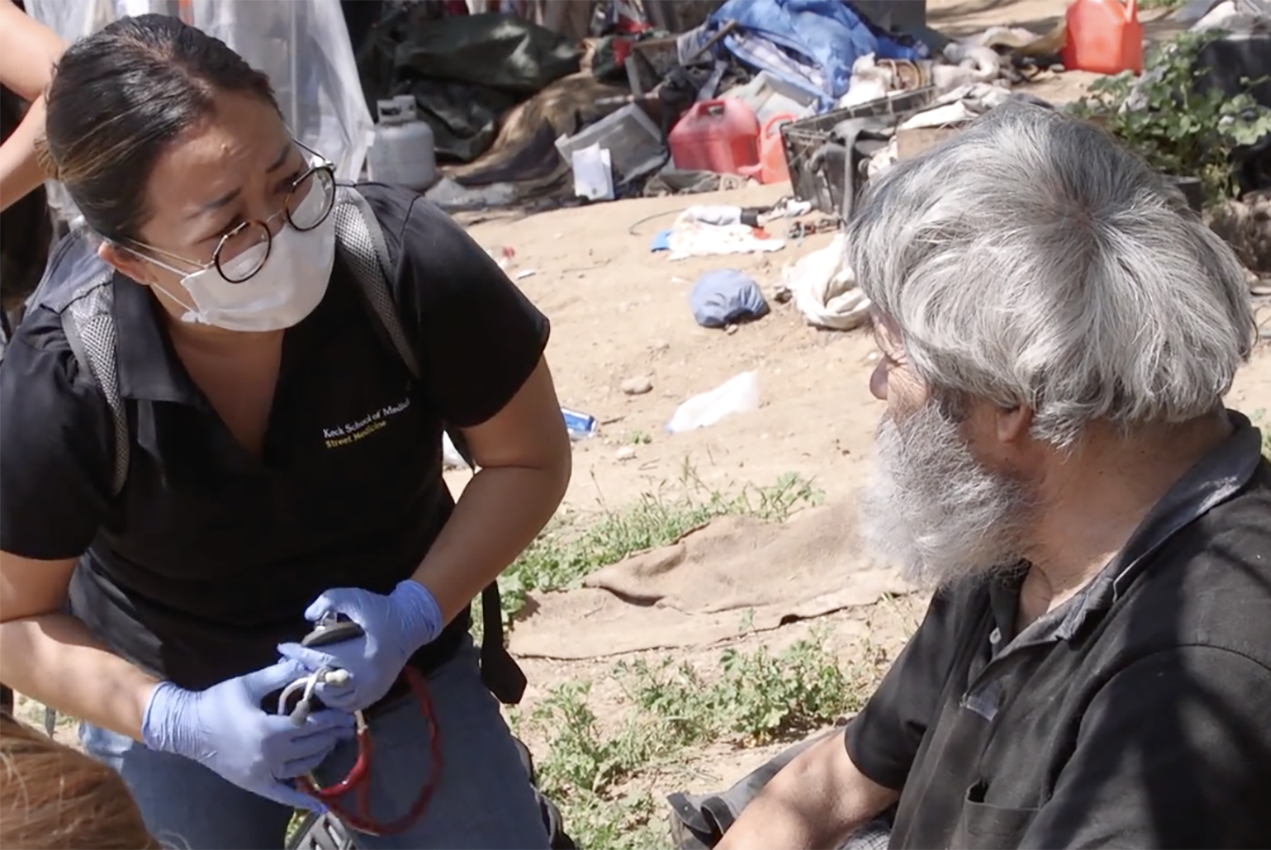With social distancing now part of the new normal in the United States, there is a team of health care providers on the streets making contact with some of the people most vulnerable to COVID-19 — the more than 45,000 people who are homeless in Los Angeles County.
For more than a year, the Keck School of Medicine of USC Street Medicine team has been caring for patients where they live — whether that’s under a freeway or in a makeshift camp — drawing labs, taking EKGs, caring for wounds and dispensing medication. With the Street Medicine team’s approach of “radical humility,” the patient takes the lead and ultimately makes the decisions on care.
“Radical humility allows us to place the patients’ needs above our own and the health care system’s,” said Brett Feldman, MSPAS, PA-C, the program’s director. “We suspend our reality to meet them in theirs. This allows us to form a strong bond and create a reality-based plan from the knowledge we gain about their life on the street. Plans based on peoples’ reality are more likely to succeed.”
In their first year, the Street Medicine team, working with Los Angeles County + USC Medical Center, had successes in both direct health care and “non-health care” benefits — they were able to decrease hospital readmissions for the patients they cared for by 75%. With the help of their community partners, 50% of the first 100 people they treated found housing.
But COVID-19 has raised the stakes on the Street Medicine team’s work, because they are now the first line of defense against the disease spreading among patients experiencing homelessness. Many patients are older and have underlying health issues, putting them at risk of serious illness if they become infected. Self-quarantining is not an option for many.
The Street Medicine team partnered with community organizations to get many of the most vulnerable people into new shelter space where they could practice social distancing. At the same time, as much of society closed down, the team has leaned in even more to help those still on the streets. They collaborated with Union Station Homeless Services, adding a second group of professionals to work with people who are experiencing homelessness in Pasadena and the San Gabriel Valley. The team is already providing care to patients, as well as information about COVID-19 and how patients can protect themselves.
The care the Street Medicine team provides does more than help these patients, it also helps reduce the risk to the community as a whole.
“If our patients become sick, we may be the only ones to know,” Feldman said. “By caring for these patients and getting them the resources to isolate themselves from others, we can help prevent the disease from spreading.”
More than half a million people are homeless in the United States, and hundreds of millions more live on the streets globally. With its early success among the nation’s biggest homeless population, USC Street Medicine is creating a model of health care for people who are homeless across the U.S. and beyond — one that more holistically addresses the medical challenges of homelessness, whether in times of crisis or in times of greater stability for the rest of society.
— Laura LeBlanc


